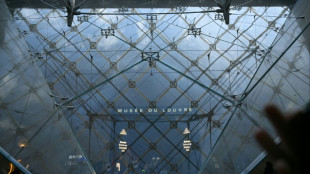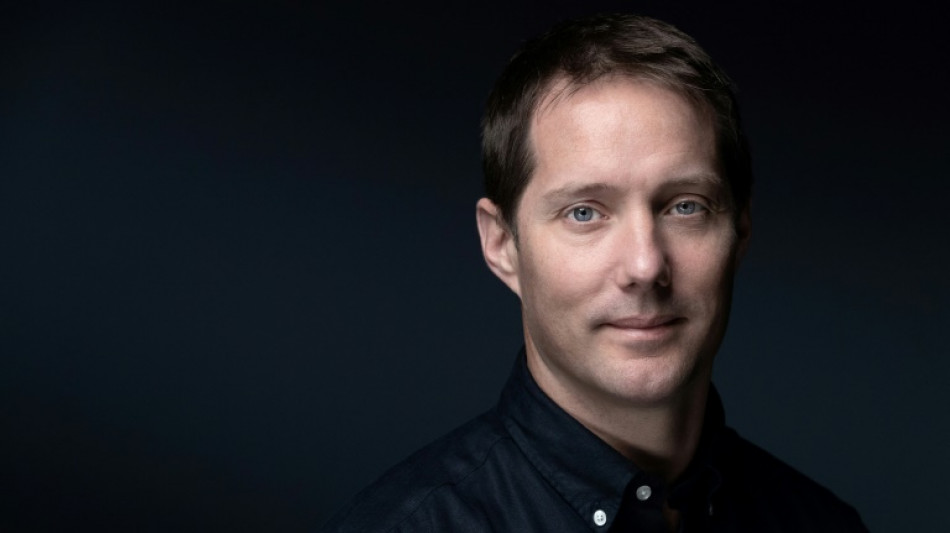
-
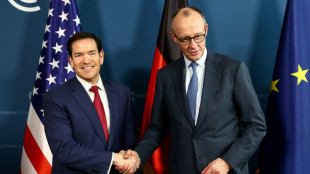 Rubio at Munich security meet to address Europeans rattled by Trump
Rubio at Munich security meet to address Europeans rattled by Trump
-
Medal-winner Sato says Malinin paid for 'toxic schedule'

-
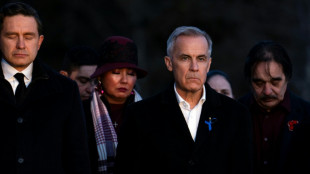 Carney offers support of united Canada to town devastated by mass shooting
Carney offers support of united Canada to town devastated by mass shooting
-
All-in on AI: what TikTok creator ByteDance did next

-
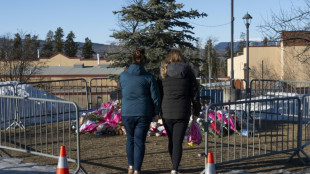 Canada PM visits memorial for mass shooting victims as new details emerge
Canada PM visits memorial for mass shooting victims as new details emerge
-
Healthy Ohtani has Cy Young Award in sights

-
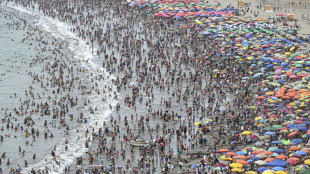 One of Lima's top beaches to close Sunday over pollution
One of Lima's top beaches to close Sunday over pollution
-
'Nothing is impossible': Shaidorov shocks favourite Malinin to make history

-
 Malinin wilts at Olympics as Heraskevych loses ban appeal
Malinin wilts at Olympics as Heraskevych loses ban appeal
-
Bhatia joins Hisatsune in Pebble Beach lead as Fowler surges

-
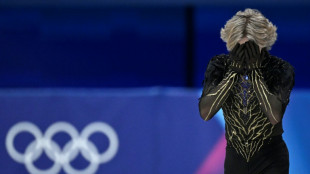 Malinin meltdown hands Shaidorov Olympic men's figure skating gold
Malinin meltdown hands Shaidorov Olympic men's figure skating gold
-
Top seed Fritz makes ATP Dallas semis with fantastic finish

-
 Patriots star receiver Diggs pleads not guilty to assault charges
Patriots star receiver Diggs pleads not guilty to assault charges
-
Havana refinery fire under control as Cuba battles fuel shortages
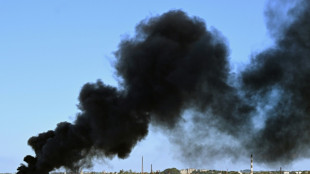
-
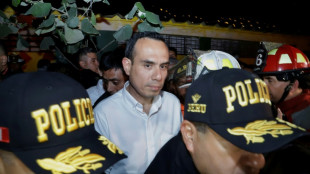 Peru Congress to debate impeachment of interim president on Tuesday
Peru Congress to debate impeachment of interim president on Tuesday
-
Snowboard veteran James targets 2030 Games after Olympic heartbreak

-
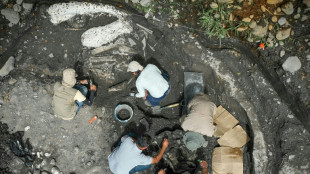 Costa Rica digs up mastodon, giant sloth bones in major archaeological find
Costa Rica digs up mastodon, giant sloth bones in major archaeological find
-
Trump says change of power in Iran would be 'best thing'
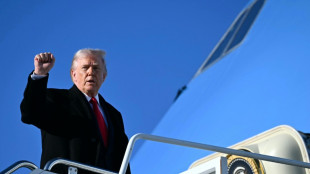
-
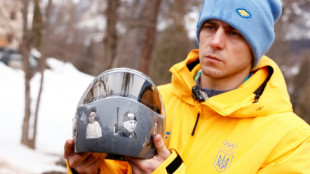 Ukrainian skeleton racer Heraskevych loses appeal against Olympic ban
Ukrainian skeleton racer Heraskevych loses appeal against Olympic ban
-
Paris police shoot dead knife man at Arc de Triomphe
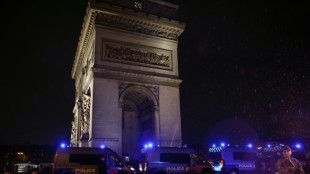
-
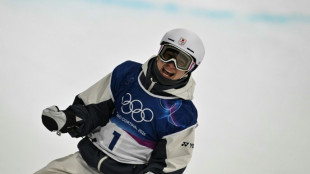 Japan's Totsuka wins Olympic halfpipe thriller to deny James elusive gold
Japan's Totsuka wins Olympic halfpipe thriller to deny James elusive gold
-
Canada's PM due in mass shooting town as new details emerge
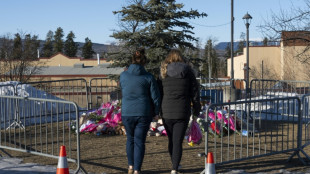
-
 Neto treble fires Chelsea's FA Cup rout of Hull
Neto treble fires Chelsea's FA Cup rout of Hull
-
Arbitrator rules NFL union 'report cards' must stay private

-
 Dortmund thump Mainz to close in on Bayern
Dortmund thump Mainz to close in on Bayern
-
WHO sets out concerns over US vaccine trial in G.Bissau
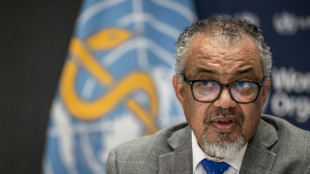
-
 Skeleton racer Weston wins Olympic gold for Britain
Skeleton racer Weston wins Olympic gold for Britain
-
Ex-CNN anchor pleads not guilty to charges from US church protest
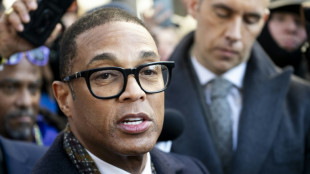
-
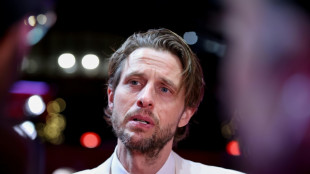 Berlin premiere for pic on jazz piano legend Bill Evans
Berlin premiere for pic on jazz piano legend Bill Evans
-
Fire at refinery in Havana as Cuba battles fuel shortages
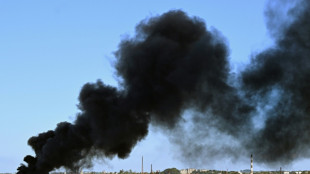
-
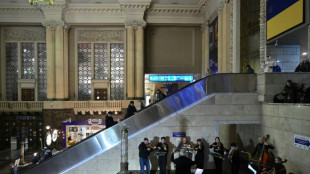 A Friday night concert in Kyiv to 'warm souls'
A Friday night concert in Kyiv to 'warm souls'
-
PSG stunned by rampant Rennes, giving Lens chance to move top

-
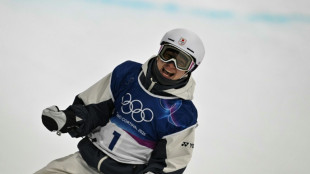 Japan's Totsuka wins Olympic halfpipe thriller as James misses out on gold
Japan's Totsuka wins Olympic halfpipe thriller as James misses out on gold
-
Indian writer Roy pulls out of Berlin Film Festival over Gaza row
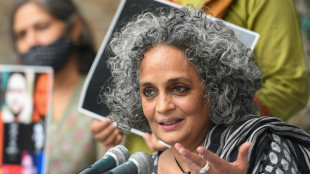
-
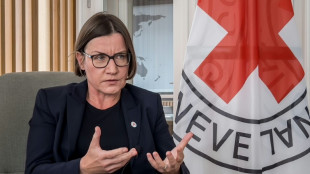 Conflicts turning on civilians, warns Red Cross chief
Conflicts turning on civilians, warns Red Cross chief
-
Europe calls for US reset at security talks

-
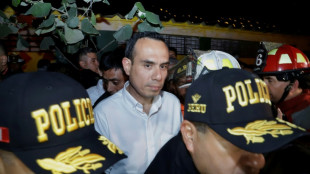 Peru leader under investigation for influence peddling
Peru leader under investigation for influence peddling
-
Rising star Mboko sets up Qatar Open final against Muchova

-
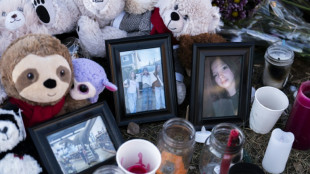 Canada PM to mourn with grieving town, new details emerge on shooter
Canada PM to mourn with grieving town, new details emerge on shooter
-
US waives Venezuela oil sanctions as Trump says expects to visit

-
 NBA star Chris Paul retires at age 40 after 21 seasons
NBA star Chris Paul retires at age 40 after 21 seasons
-
WTO chief urges China to shift on trade surplus

-
 Vonn hoping to return to USA after fourth surgery on broken leg
Vonn hoping to return to USA after fourth surgery on broken leg
-
Trump sending second aircraft carrier to pile pressure on Iran
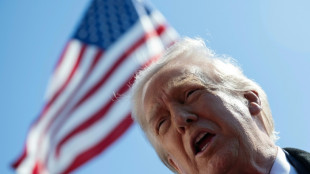
-
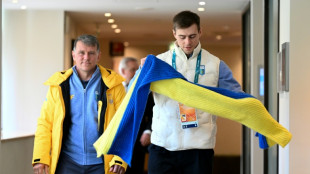 Heraskevych loses Olympics disqualification appeal, Malinin eyes second gold
Heraskevych loses Olympics disqualification appeal, Malinin eyes second gold
-
Mercedes have 'taken a step back': Russell

-
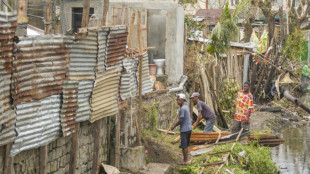 Madagascar cyclone death toll rises to 40, water, power still out
Madagascar cyclone death toll rises to 40, water, power still out
-
Earl says England inspired by last year's Calcutta Cup
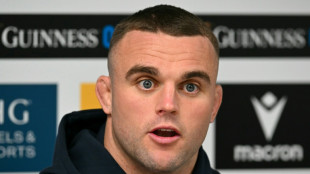
-
 Stocks sluggish as AI disruption worries move to fore
Stocks sluggish as AI disruption worries move to fore
-
USA romp past Dutch in T20 World Cup to keep Super Eight hopes alive


'Earth is in our hands': Astronaut Pesquet's plea for the planet
From his unique viewpoint hundreds of kilometres above Earth, French astronaut Thomas Pesquet told AFP he felt helpless watching fires rage across the planet below, calling for more to be done to protect this fragile "island of life".
Pesquet said his two tours onboard the International Space Station convinced him more than ever that the world is failing to address the threat posed by climate change.
He also witnessed moments of astonishing beauty while in space, some of which are captured in 300 photos published in his new book "La Terre entre nos mains" (Earth is in our Hands), released this week in France, the profits of which will go to charity.
Pesquet wrote that he initially "caught the photo bug" during his first tour on the ISS in 2016-2017.
But it was during his last mission, from April to November 2021, that he fully embraced the endeavour, taking constant photos and sharing his passion with his colleagues in space.
"At first I was a bit of a Sunday photographer, then I really got a taste for it," Pesquet told AFP in an interview.
"When you to arrive at the station, you have that smartphone reflex: you see something great and want to immortalise it," he said.
"But quickly you are confronted with limitations, if you want to take photos at night, for example, or of precise targets with long lenses," he added.
"It's difficult because everything is manual".
- 245,000 photos -
Around a dozen cameras are available to astronauts on the ISS, some permanently installed on the Cupula observation module, some in the US laboratory which has a porthole looking down on Earth.
Despite only having a few hours of leisure time a day, Pesquet took 245,000 photos during his last tour.
"Many are not very good, but in six months there is a real progression curve," he said.
Throughout the photos of rivers, oceans, deserts, mountains, sunsets and sunrises, the astronaut's amazement at the world shines through.
"The planet is so vast and diverse that you still don't feel like you've seen everything. Even after 400 days in orbit, there are still some thing that surprise me, places I haven't seen," he said.
The speed of the station, which hurtles through space at 28,000 kilometres an hour, means that "we are never above the same area at the same time of day," he said.
One day, he was surprised to find out that the northern lights appeared blue from space.
Pesquet only managed to get a photo of the phenomenon because his US colleague Shane Kimbrough told him it was taking place, after spotting it out of his bedroom window.
- 'Sinister spectacle' -
But Pesquet did not only witness Earth's beauty.
He also captured images of a world in a state of degradation: the "sinister spectacle" of hurricanes, tornadoes and fires that stormed across the planet during his second stint of 200 days in space.
Pesquet described himself as a "helpless" witness to the carnage.
"What struck me the most were the fires. We could see the flames and smoke very clearly," he said, which gave the impression of "the end of the world."
"Like in the movies," he watched as entire regions were engulfed. Parts of southern Europe, British Columbia and California were "consumed little by little by a blanket of smoke," he added.
"I saw the difference just four years made," he said.
"My first mission was in winter and the second in summer, so it was normal that there were more fires -- but overall I saw more violent phenomenona."
Watching these increasingly extreme weather events, "which we know are linked to climate change, has convinced me that we not doing enough to protect our planet," Pesquet wrote in the book.
Without science "we would be lost in the face of the magnitude of the challenges" ahead, he said.
"It's not too late, but the longer we wait..." he trailed off.
"Every year we say 'now is the time act' -- and it's the same the next year, we only make small changes without a strong global impact."
K.AbuDahab--SF-PST

